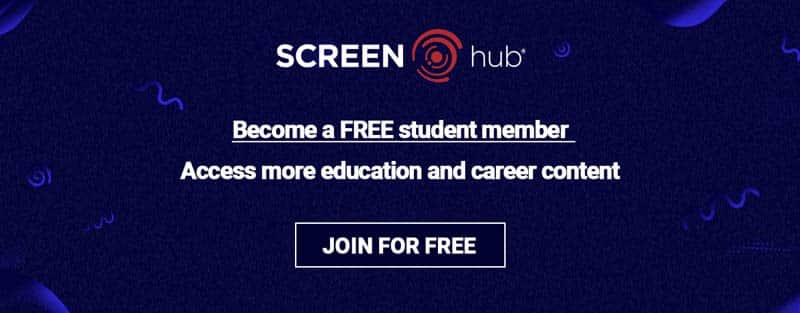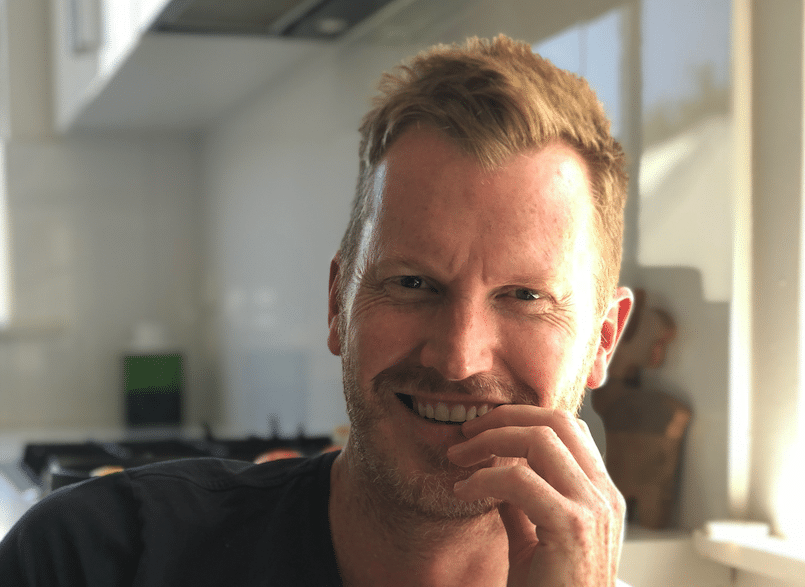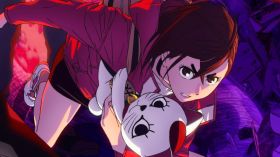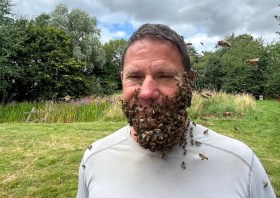Screenwriter and producer David Hannam has a slate of original projects in development in Australia and the UK. He is a writer and executive producer on Acorn’s first Australian original drama Darby and Joan, starring Bryan Brown and Greta Scacchi, which was released in August 2022 to critical acclaim. He is currently developing season two, after consulting and writing for Paramount+ music industry thriller Paper Dolls.
Here, he shares some tips and tricks of the trade ahead of a Masterclass with Media Mentors Australia.
Hi David. How and when did you get into writing for screen (and was it always an ambition of yours)?
My writing career is a fortunate accident. In a biopic, it’d go something like this …
Act One: Self-important young TV reporter has to be badgered into submitting a concept for an ABC youth drama. Because, well, he’s a self-important young TV reporter (and a bit dumb). Legendary Head of Drama Sue Masters sees something in his idea. She asks to meet for coffee.
Act Two: Dumb reporter develops series ideas for Sue and ABC Drama while she, generously and patiently, teaches him what drama is (i.e. you don’t have to kill people all the time; big drama comes from small moments). He juggles writing and journalism for a few years, unsure if he has what it takes to be a writer. When he gets fired from his last reporting job – let’s call this a Saturn Return-inspired second act turning point – Sue Masters comes to the rescue, talking Roger Simpson, another drama legend, into hiring the now-former-reporter on Something In Air, an ABC serial way ahead of its time. Dumbo decides to give writing a go for the summer.
Act Three: Twenty-ish years later, he’s still writing, also now producing, with tremendous gratitude to Sue, and the crazily talented writers and producers who were so patient and supportive early in his career.
Coda: He gets how fortunate he is. He’s slightly less dumb now. Slightly.
Can you tell us a bit about your upcoming show, Paper Dolls?
It is not my show, it is Ainslie Clouston’s. Ainslie is an absolute powerhouse and has such a dynamic and challenging voice. It was a joy to write episodes for her, and be the ‘how about this?’ guy across her first series as creator. First of many. I can’t say too much about the show, but I’m excited to see how the audience receives it – it is a lot more than the story of a 1990s manufactured girl band. As it unfolds, it is also a psychological drama with bite.
Is there a philosophy of piece of advice that’s held you in good stead throughout your life or career?
Receive notes graciously (even when you don’t agree with them), and be aware of your ego. We’re writers, we all have one, and we need it to do the job. But it can get in the way. Mine definitely has.
Creating your own show is the goal for most of us, but while we’re slogging away at that, freelancing on other people’s ideas, helping them deliver their show, is how most of us learnt the craft and how to sustain a career. While it is wildly collaborative and fun, gun-for-hire writing isn’t for everyone.
It demands fortitude and pragmatism. You’re still you, but inside someone else’s creative vision. Which is where the ego thing comes in. Nailing those jobs will be a struggle if you can’t see over the top of your ego.
What’s the biggest difference between how you imagined this line of work might be and the reality?
The constant evolution. That probably sounds really naïve and obvious, but I started out in network TV, when the rules and possibilities were more static and defined. Now, the industry, the audience, our creative ambitions, endlessly shift and change. I think that’s what’s so exciting, and simultaneously terrifying, about making television.
We might be entering our post-Golden Era era, but the rule that there are no rules remains. That is an amazing craft opportunity. I still feel like I’m still learning. With every project and collaboration. I love that. You can’t ever stand still in this industry.
What advice would you give anyone trying to get their foot in the door as a TV writer today?
Write. And keeping writing. Have spec scripts that tell producers and development people who you are and what you have to say. As writers, we spend a lot of time talking about writing (translation: complaining about writing) but success really is determined by hours in front of a keyboard. That’s how we hone craft skills and find our voice.
I’d also say, prepare meticulously for every meeting, whether it be a general with a producer (research who is making what, and reach out to the like-minded). If it’s a story meeting, always come with a handful of ideas, and be conscious of the right moment to pitch them (i.e., try to read the room).
They might not be 100% right, but people who generate story always get asked back. Build good relationships. They will get you work. And keep you sane(ish).
David Hannam is delivering the Breaking Into TV Writing with David Hannam masterclass with Media Mentors Australia online on 4 October. He will also be running the four-week course Take Your TV Pilot From Good to Great from 28 October. For more information and tickets visit the Media Mentors website.






